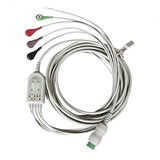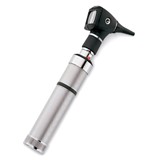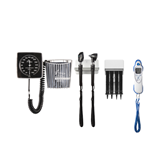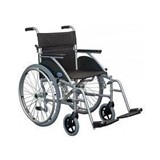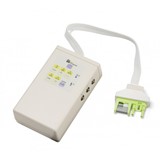Selecting the right electrocardiogram (ECG) machine is a significant decision for any healthcare facility. ECG machines play a vital role in diagnosing cardiac conditions and monitoring patients' heart health. With various types and models available on the market, it's essential to consider specific factors when choosing an ECG machine that best suits the needs of your healthcare facility. Let's explore the key considerations to help you make an informed decision.
Factors to Consider in Selecting ECG Machines
Selecting the right electrocardiogram (ECG) machine is a critical decision for any healthcare facility. ECG machines are essential diagnostic tools used to assess the heart's electrical activity and diagnose cardiac conditions. Considering the following factors will help healthcare providers make an informed choice when choosing an ECG machine:
-
Type of ECG Machine: Determine the primary purpose of the ECG machine. Whether it is for resting ECGs, stress testing, Holter monitoring, or event monitoring, selecting the appropriate type is crucial for meeting your facility's clinical needs.
-
Number of Leads: The number of leads affects the comprehensiveness of the ECG recording. A standard 12-lead ECG provides detailed information from different angles, but facilities may opt for 3-lead or 6-lead machines for specific applications.
-
Portability and Mobility: Consider the mobility of the ECG machine based on the clinical setting. Portable and lightweight machines are ideal for ambulatory care or remote healthcare services, while fixed models may be more suitable for in-hospital use.
-
User-Friendly Interface: An ECG machine with an intuitive user interface simplifies operation and reduces the likelihood of errors during use. Look for machines with clear displays, easy-to-understand controls, and simple navigation menus.
-
Connectivity and Integration: Choose ECG machines with data transfer capabilities, such as Bluetooth or Wi-Fi connectivity. Integration with electronic health record (EHR) systems streamlines the documentation process and enhances patient care.
-
Data Management and Storage: Assess the machine's data storage capacity to ensure it can handle the expected patient load. Consider options for data backup, data export, or cloud storage to safeguard patient records.
-
Advanced Features: Depending on the facility's needs, consider advanced features like automated interpretation algorithms, rhythm analysis tools, or artificial intelligence-assisted diagnostics. Such features can enhance diagnostic accuracy and efficiency.
-
Maintenance and Support: Check the availability of customer support and maintenance services for the ECG machine. Regular maintenance and calibration are essential to keep the machine functioning accurately and reliably.
-
Cost Considerations: Budget is a crucial factor in selecting an ECG machine. Compare features, performance, and value for money across different models within the facility's budget range. Prioritize quality and functionality over the lowest price.
-
Regulatory Compliance: Ensure that the selected ECG machine meets relevant regulatory standards and certifications. Compliance with industry regulations ensures patient safety and quality assurance.
-
Training and Education: Consider the availability of training and educational resources provided by the manufacturer. Proper training for healthcare staff is essential to ensure the ECG machine is used effectively and to its full potential.
-
Durability and Reliability: Choose a reputable brand known for producing durable and reliable ECG machines. Long-lasting equipment reduces downtime and the need for frequent replacements.
Different Types of ECG Machines: Resting, Stress, Holter, and More
Electrocardiography (ECG or EKG) is a versatile diagnostic tool used to assess the heart's electrical activity. Different types of ECG machines are available to cater to various clinical needs and settings. Each type serves a specific purpose, allowing healthcare professionals to obtain valuable information about the heart's function and detect potential cardiac abnormalities. Let's explore the various types of ECG machines commonly used in medical practice.
1. Resting ECG Machines
Resting ECG machines are the most common type and are used to perform standard electrocardiograms in a relaxed and resting state. These machines are often found in clinics, hospitals, and medical offices. Patients lie down or sit quietly during the procedure while electrodes attached to their chest, arms, and legs record the heart's electrical signals. Resting ECGs are essential for routine check-ups, diagnosing heart conditions, and monitoring patients with known cardiac issues.
2. Stress ECG Machines (Exercise ECG or Treadmill ECG)
Stress ECG machines are designed to assess the heart's response to physical stress or exercise. During the test, the patient walks on a treadmill or pedals on a stationary bike, gradually increasing the intensity of the exercise. The ECG records the heart's electrical activity while the patient's heart rate and blood pressure are monitored. Stress ECGs are particularly useful in evaluating patients with suspected coronary artery disease or determining the presence of exercise-induced arrhythmias.
3. Holter Monitors
Holter monitors are portable ECG devices used for continuous monitoring of the heart's electrical activity over an extended period, typically 24 to 48 hours or more. The device is small and lightweight, allowing patients to wear it throughout their daily activities. Holter monitors are useful for detecting irregular heart rhythms that may not be captured during a standard resting ECG. Physicians often use Holter monitoring to assess symptoms like palpitations, dizziness, or fainting episodes.
4. Event Monitors
Event monitors are similar to Holter monitors in that they provide continuous ECG monitoring. However, event monitors are used for a shorter duration, usually up to 30 days. They are particularly beneficial for patients who experience infrequent or episodic symptoms, such as intermittent palpitations or unexplained fainting. When the patient experiences symptoms, they activate the event monitor, which records and saves the ECG data for further analysis by healthcare professionals.
5. Wireless ECG Monitors
Wireless ECG monitors offer convenience and mobility. They are typically small, wearable devices that connect to a smartphone or other devices via Bluetooth technology. Patients can use these monitors to perform ECG tests at home or on-the-go, under the guidance of their healthcare providers. Wireless ECGs are especially valuable for individuals with chronic heart conditions requiring frequent monitoring.
6. Telemetry ECG Machines
Telemetry ECG machines are used in hospital settings to continuously monitor patients' heart activity while they move within the facility. Telemetry units transmit real-time ECG data wirelessly to central monitoring stations, allowing healthcare professionals to keep a close eye on patients' cardiac status even as they move around. This technology is commonly used in cardiac care units and post-surgery recovery areas.
7. Ambulatory ECG Recorders
Ambulatory ECG recorders are compact and lightweight devices that patients can wear discreetly while going about their regular activities. These recorders continuously monitor the heart's electrical activity for an extended period, usually 24 hours or more. Ambulatory ECGs are useful in detecting arrhythmias, assessing treatment effectiveness, and identifying intermittent cardiac abnormalities.
Pros and Cons of Portable vs. Fixed ECG Machines
Portable ECG Machines:
Pros:
- Mobility and Flexibility: Portable ECG machines are lightweight and easy to carry, allowing healthcare professionals to perform ECG tests at the patient's bedside or in remote locations. They are ideal for ambulatory care settings and home healthcare services.
- Convenience for Patients: Portable ECG machines offer greater convenience to patients, as they can have the test done without having to move to a dedicated ECG room. This can be particularly beneficial for patients with mobility issues or those in critical condition.
- Immediate Results: With portable ECG machines, healthcare providers can obtain immediate results at the point of care. This enables prompt decision-making and intervention, especially in emergency situations.
- Telemedicine Integration: Portable ECG machines often come with connectivity options, allowing real-time transmission of data to remote locations. This facilitates telemedicine consultations and expert opinions without the need for the patient to travel.
- Cost-Effectiveness: Portable ECG machines can be a cost-effective solution, especially for healthcare facilities with limited resources. They eliminate the need for dedicated ECG rooms and the associated infrastructure.
Cons:
- Limited Leads: Portable ECG machines may have fewer leads compared to fixed ones. This can result in less comprehensive data, potentially limiting the diagnostic capabilities in complex cardiac evaluations.
- Smaller Display Screens: Due to their compact size, portable ECG machines may have smaller display screens, making it slightly more challenging to analyze the ECG tracings.
- Battery Dependency: Relying on batteries for power means that regular charging and monitoring of battery levels are necessary to ensure uninterrupted functionality.
Fixed ECG Machines:
Pros:
- Comprehensive Data: Fixed ECG machines typically offer a full set of 12 leads, providing comprehensive data for a detailed assessment of the heart's electrical activity from different angles.
- Large Display Screens: Fixed ECG machines often come with larger display screens, making it easier for healthcare professionals to analyze and interpret ECG tracings.
- Stability and Accuracy: Being fixed to a specific location, these machines are less prone to movement or disturbance during the test, ensuring stable and accurate recordings.
- Advanced Features: Fixed ECG machines may have more advanced features, such as integrated interpretation algorithms and extensive data management capabilities.
Cons:
- Limited Mobility: Fixed ECG machines are not portable and are confined to specific locations within the healthcare facility. Patients may need to be transferred to the machine, which could be inconvenient in certain situations.
- Cost and Space: Fixed ECG machines require dedicated space and infrastructure within the facility, which could add to the initial investment and ongoing maintenance costs.
- Patient Discomfort: Some patients may find it less comfortable to be moved to a fixed ECG machine, especially if they are already in a fragile or unstable condition.
Connectivity and Integration with Hospital Information Systems (HIS)
Connectivity and integration with Hospital Information Systems (HIS) is a crucial aspect of modern healthcare technology, including ECG machines. HIS is a comprehensive software system that manages and stores patient information, medical records, and administrative data within a healthcare facility. When ECG machines are connected and integrated with the HIS, it brings numerous benefits to patient care and overall efficiency. Here's why connectivity and integration with HIS are essential:
1. Seamless Data Transfer
Integration allows ECG machines to transmit ECG data directly to the HIS without the need for manual data entry. This seamless data transfer saves time and minimizes the risk of errors that may occur during manual input.
2. Real-Time Access to ECG Results
With integration, ECG results become instantly accessible in the patient's electronic health record (EHR). Healthcare providers can review and interpret the results in real-time, leading to faster diagnosis and timely interventions.
3. Comprehensive Patient Record
By integrating ECG data with the HIS, the patient's complete medical history, including ECG findings, is available in a single centralized location. This comprehensive view of the patient's health allows for better-informed decision-making and continuity of care.
4. Enhanced Interdisciplinary Collaboration
Integrated ECG data fosters collaboration between different healthcare professionals involved in the patient's care. Cardiologists, general physicians, nurses, and other specialists can access the same ECG results, facilitating coordinated treatment plans.
5. Improved Data Analysis
ECG data integrated into the HIS can be analyzed on a larger scale, aiding in research, quality improvement initiatives, and the identification of patterns or trends in cardiac health within the patient population.
6. Telemedicine and Remote Consultations
Connectivity enables telemedicine consultations, where ECG results can be shared securely with specialists located remotely. This is especially valuable for facilities in rural or underserved areas that may not have access to specialized cardiac care.
7. Decision Support and Alerts
Integration allows for the implementation of decision support tools and alerts. For example, abnormal ECG findings can trigger automatic alerts to the healthcare team, ensuring timely follow-up and interventions.
8. Efficient Workflow
When ECG machines are seamlessly integrated with the HIS, it streamlines the workflow for healthcare providers. They can access and record ECG data from within the same system they use for other patient-related tasks, reducing the need to switch between multiple platforms.
9. Enhanced Security and Privacy
Properly integrated systems ensure data security and patient privacy. Access controls and encryption mechanisms safeguard sensitive ECG data from unauthorized access.
10. Paperless Environment
Integration reduces the reliance on paper-based records and enhances the transition towards a more environmentally friendly and efficient electronic documentation system.
Choosing the right ECG machine for your healthcare facility requires careful consideration of various factors, including the machine's type, number of leads, portability, user-friendliness, connectivity, and advanced features. A well-chosen ECG machine can enhance diagnostic capabilities, improve patient care, and streamline workflow in your facility. Take the time to assess your facility's specific needs and select an ECG machine that aligns with your clinical requirements and budget while ensuring the highest quality of patient care.



